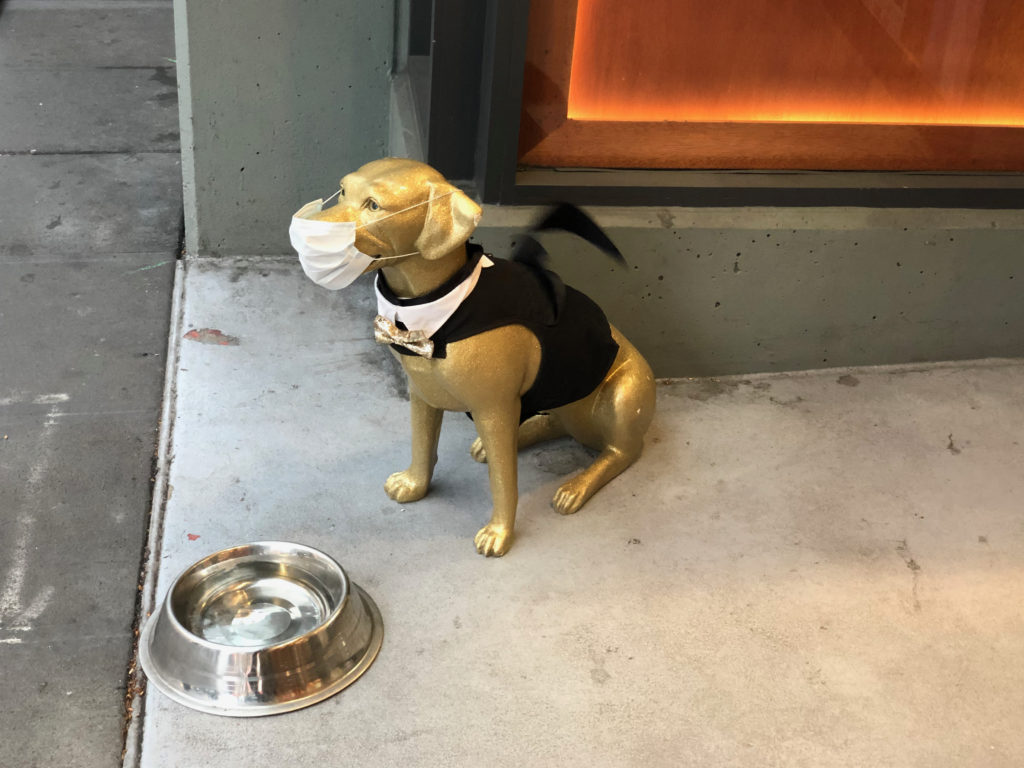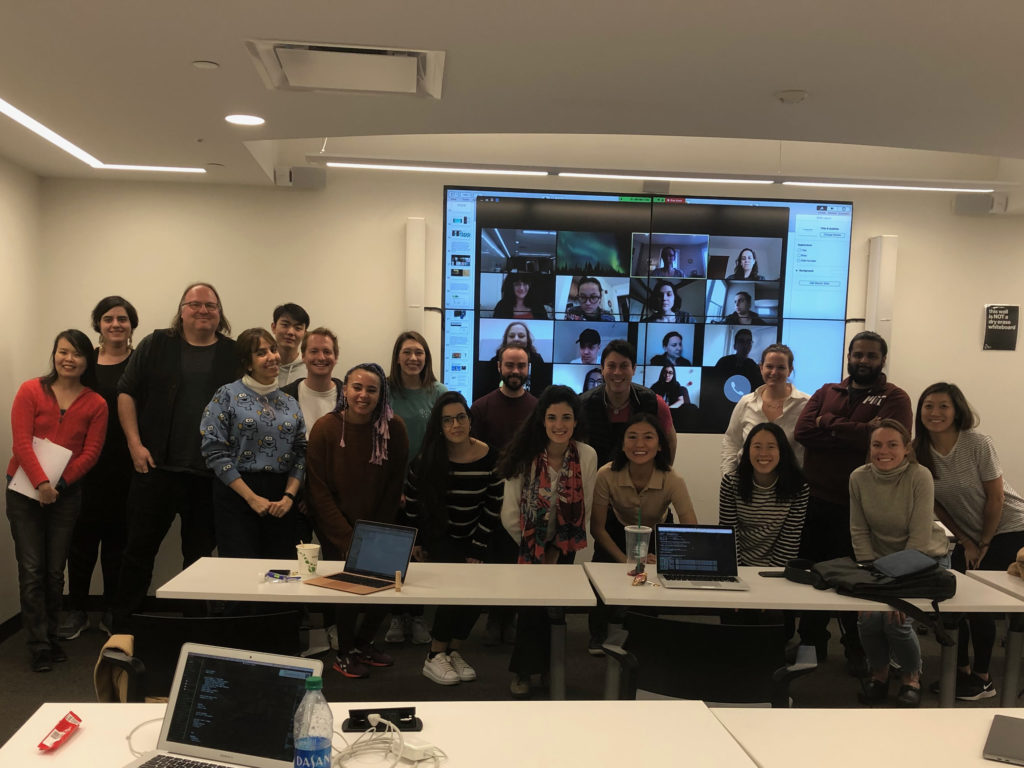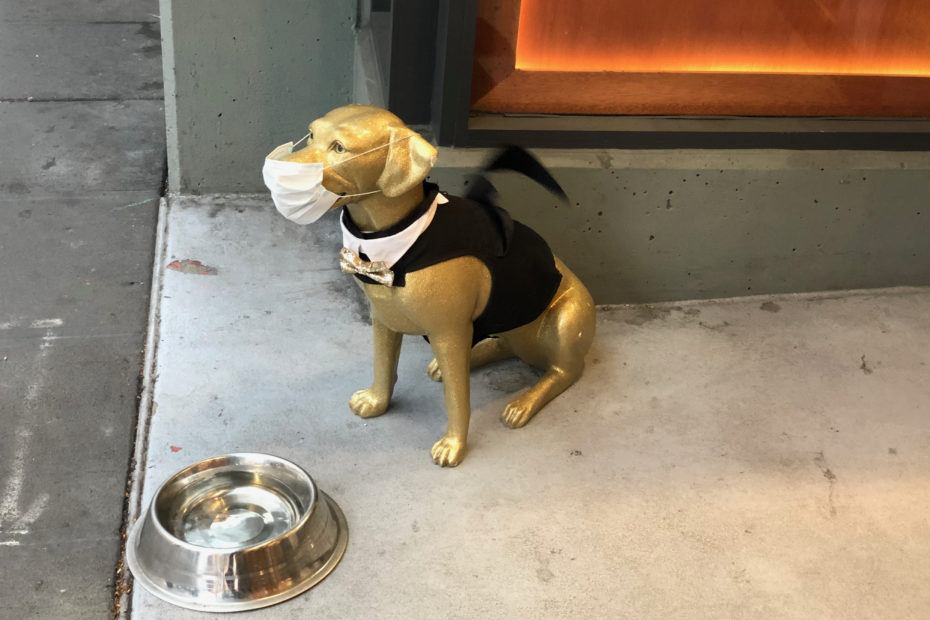Today is the anniversary of the day I started paying attention to the coronavirus pandemic in earnest. We’re about to see a wave of these posts of people reflecting on a year in isolation – I had planned to write one in early March. But on reviewing my email, I see that on February 26, my colleague at the MIT Media Lab Dr. Kevin Esvelt sent out a long email that began “Raising a topic considered fringe is inherently socially awkward, and can even be considered taboo when it’s associated with unequal health and mortality risks.” He noted that he had initially predicted that the novel coronavirus was likely to cause between a thousand and ten million deaths worldwide, and that recent news forced him to raise the upper bounds on his estimate to forty million deaths.
Kevin’s caution in sending the email out was reasonable – in late February 2020, the pandemic was something that had hit China hard, but hadn’t been reported as a cause of death in the US. In retrospect, we know that there was an ongoing outbreak in Seattle, Washington, but the first death from COVID-19 wasn’t announced until February 29. It’s remarkable to think of how quickly Kevin’s caution went from being a possible overreaction to a topic on the fringe of most Americans’ attention to being a prescient view of the new normal.

Having received Kevin’s email and watching the news closely, I still got on a plane to Seattle on Monday, March 2, 2020 to give a speech at a conference. I remember the faint signs that the world was about to change: a statue of a dog outside a store near Pike’s Place Market was wearing a surgical mask, though none of the humans were. We were ordered not to hug or shake hands at the conference, so we awkwardly bumped elbows.
On Monday, March 9, 2020, I began cancelling travel, changing an important meeting in NYC to a videoconference and dropping out of a speaking engagement because I didn’t want to spend a day in a conference room with strangers. The organized was initially pissed with me, and then, by a day before the conference, seemed to realize that something was going on that was entirely beyond her control.
There was incredible uncertainty about what to do in early March: should we stop traveling, start working from home? With no guidance from federal or state governments on what precautions to take, employers became the deciders and they watched each other closely. When Microsoft announced that a few of its employees had tested positive and ordered everyone else to work from home, it started a sea change in the tech industry. MIT waited for Stanford, UWashington and Harvard to stop in person classes, then ordered us to start teaching remotely as well. My last in-person class was on March 11 – half of the class had already decided to participate remotely, and we felt a frisson of danger when we got together for a class picture to celebrate our last class together. That was the last time I taught at MIT and the last time I taught in a classroom.

I remember feeling incredibly grateful once MIT had ordered us not to travel and to work and teach from home. I was having a hard time feeling safe in Boston. I stopped using the T and walked or drove to campus. But life was a series of calculations: do I step into a crowded restaurant? Hug a friend? It feels weird to have your employer decide that it’s time to take something like a pandemic seriously, but that’s how it happened for me. I started the process of calculating risk a year ago today, and was happy to outsource much of that calculation to MIT and others a few weeks later.
And now, for me and for most everyone else, it’s been the year of going nowhere. My photo stream is devoid of the wanders through city centers that animate my life and decorate the walls of my home. This year’s photos are close to home: Drew launching model rockets, catching fish and learning to shoot a bow and arrow; Amy punching holes in the ceiling and wiring new lights; the few, precious friends who’ve visited us outside and distantly.
It’s a year of growth rather than motion: my son gets taller, my beard gets longer. My gym muscles shrink, my core gets stronger with bench presses traded for yoga, done badly and slowly. There’s change – a new university, a new lab, a new book – but the photos tell a quieter story. Leaves sprout, darken from chartreuse to green, to red, yellow and brown, until everything’s replaced by endless white. The woodpile grows and shrinks. The dog find a new slipper to destroy and eviscerates it over the course of a month.
Late one night, email answered, papers edited, I was oddly bored. Amy asked me what I was doing that gave me joy. I thought for a long time about that question and didn’t answer her until later in the week. It’s not that my life is devoid of joy – my kid, my partner, students and colleagues over Zoom, a vast pile of board games. It’s that a massive, central source of joy in my life is the experience of getting off a plane or a train in an unfamiliar city, wandering aimlessly, drinking in unfamiliar sights and sounds. That finding an unexpectedly good doner kebab in a new town is satisfying in an entirely different way that eating the best meal in your favorite familiar restaurant. I miss exploring the world to a degree that I would have found almost unimaginable before this year.
It hasn’t been a bad year, this year of going nowhere. We are safe, untouched in our immediate bubble by the disease. We are employed, in school, connected to family and friends. I suspect, with distance, I will remember it as a surprisingly sweet break from life as usual, a time that forced us all to think about what’s essential and what’s optional, whether the way we have always done things is the way we should do things. We are lucky and blessed and privileged, and we are sad and tired and bereft. We are waiting to reemerge as the snows melt and the herds become vaccinated. We will someday get on planes again, perhaps with masks this time, and I will get lost in an unfamiliar city whose name I had only read about in books and it will fill me up in a way I cannot articulate.
We are a year in and it’s not over yet. We’re okay. We’re not okay. We will be okay.

Oh, so much here resonates with me. Last March I was supposed to teach at a week-long retreat, and I withdrew because of covid. The organizers were cranky at me, at first, and then suddenly everyone seemed to realize that this was real and we were entirely unprepared…
I love your description of the quiet changes and shifts reflected in your photostream this year. Leaves changing, woodpile shrinking, kid growing.
“We’re okay. We’re not okay. We will be okay.” Yep. That. So much.
“We are lucky and blessed and privileged, and we are sad and tired and bereft.” Academia during a pandemic. Learning to me is a communal experience. One must feel the energy of the room, to feel challenged and stimulated by our professors and peers. This time last year, I was finishing my Bachelor’s in Brussels, and I now feel a bit horrified to remember one of my last lectures. Our professor commuted from Italy once per week. He callously made a joke about COVID, while the first village was about to enter lockdown. He strode up and down the aisle of the room coughing. I was afraid. I am very fortunate to now be studying a Master’s at a university in London where I had in-person teaching throughout Fall term. Exceptionally lucky I realize, but the environment feels so sanitary. Masks, distance, no handshakes or hugs. Arranged neatly in rows within a sparse classroom. Nothing like the packed lectures and seminars of one year ago. I hope that universities will be able to soon return to the warm conviviality, packed halls, and buzzing energy of before. Blessed to have the privilege of education, but sad because it does not feel much like before.
Hi Ethan,
Beautifully captured anecdotes and thoughts. Heartwarming to read your words. I have been travelling on heygo.com. Thought it might interest you!
I like the picture of a dog wearing mask. A great messenger indeed.
Comments are closed.